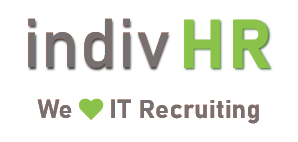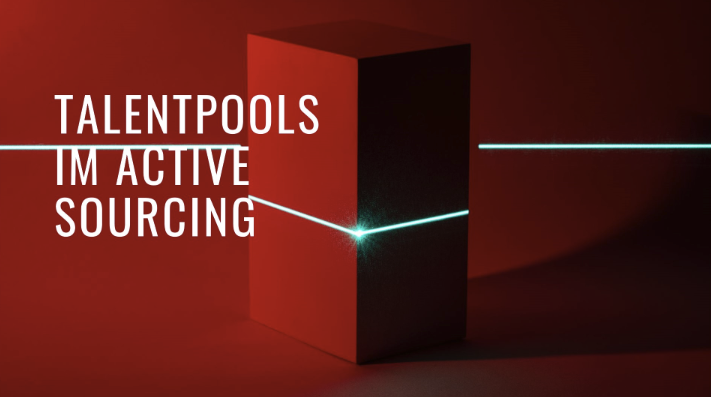The time between signing the contract and the first day of work, the so-called Preboardingis often underestimated in IT recruiting. Especially in times of remote working and changing working conditions, this phase can be decisive in determining whether a new employee feels welcome and integrated or not. Successful preboarding can make the difference between an employee arriving motivated and prepared on their first day at work or with doubts and insecurities. But what exactly is preboarding and why is it so important?

Preboarding vs. onboarding: what's the difference?
Many people confuse preboarding with onboarding, but there are crucial differences. While onboarding officially begins on the first day of work and aims to introduce the new employee to the company in technical, organisational and cultural terms, preboarding starts as soon as the contract is signed. Preboarding ensures that the anticipation of the new job remains high and uncertainties are reduced before the new colleague even arrives in the office. This phase offers an important opportunity to set the course for a successful collaboration and to create an emotional bond with the new colleague.
Structured preboarding is a valuable part of employee retention. It ensures that the new employee receives all relevant information about the company, their tasks and their first steps. This includes details about the corporate culture, initial work documents and organisational information. The aim of preboarding is to avoid a feeling of isolation and instead establish an early connection with new colleagues and the corporate culture. Integration therefore does not begin on the first day of work, but from the moment the contract is signed.
The importance of preboarding for employee retention
One of the most common causes of so-called "no-shows" on the first day of work is a lack of involvement in the phase between signing the contract and the start date. If candidates have the feeling that the company is not really thinking about them during this time, doubts can arise as to whether the decision was the right one. Active pre-boarding, on the other hand, ensures that new talent stays on board and feels well looked after. This phase can be decisive in gaining the trust of the new employee and binding them emotionally to the company.
For recruiters and hiring managers, this means that they should introduce targeted measures to maintain enthusiasm and make the new colleague feel important right from the start. This includes welcome packs, which may even contain small gimmicks that draw attention to the company. Providing material that prepares the new employee for their tasks or invitations to team events before their first day at work can also work wonders. It is crucial that the employee does not have the feeling of being in limbo until the first day, but feels involved right from the start.
Successful preboarding not only helps to increase the commitment of the new employee, but also strengthens loyalty to the company. Active preboarding can make all the difference, especially in the IT sector, where there is a huge shortage of skilled labour. If candidates realise that the company is genuinely interested in them and supports them from the outset, they are much more likely to actually start and be motivated to join the company. This also significantly reduces the drop-out rate and the associated costs.
Practical tips for successful preboarding
A number of specific measures are helpful in making preboarding a success. These measures should ensure that the new employee feels welcome and is optimally prepared before officially joining the company:
- Welcome packsA small package with useful items for everyday working life, such as a notebook, company merchandise or a personalised welcome letter, can have a big impact. Such gifts show the new employee that the company is thinking of them and values them.
- Information materialNew employees should be given access to basic information, such as internal tools, the team structure, initial tasks and processes within the company, even before their first day at work. The better prepared the employee is, the more confidently they can start their first day at work.
- Integration into the teamThe new colleagues could welcome the new employee by email or video call. There may also be the opportunity to take part in a social event to get to know the team. Such early encounters can help to lower the inhibition threshold and convey a sense of belonging.
- Digital check-insRegular short check-ins by phone or video call ensure that the new employee feels looked after and that any questions that arise are clarified. The aim is to keep reminding the employee that the company is looking after them and that they are welcome. Questions about equipment can also be clarified, such as whether the laptop has already arrived or whether technical support is required.
In addition to these measures, the company should also ensure that the new employee is given a clear roadmap for the first few weeks. It can be helpful to provide an overview of the first important steps before the first day so that the employee can orientate themselves better. The more concrete the preparation, the easier the start.
"The time between signing the contract and the first day at work is often neglected, but it is precisely this phase that determines whether the new employee feels part of the team right from the start. Good preboarding not only increases anticipation, but also creates an emotional bond between the new colleague and the company. It is the first step towards a successful collaboration based on trust and appreciation." - Ilka Zeiner, Managing Director of indivHR
Preboarding as a success factor in recruiting
Preboarding is more than just an organisational preparation phase. It is a strategic opportunity to strengthen the connection between the company and the new employee even before their first day. Especially in the IT sector, where the battle for talent is fierce, successful preboarding can make all the difference. Use this phase to welcome and inspire your new colleagues. Preboarding gives you the opportunity to build trust and make the employee feel important from the outset. A strong bond right from the start not only promotes employee satisfaction, but also contributes to the long-term success of the company.
Make preboarding an integral part of your recruitment process and you will find that the quality and stability of your hires will increase significantly. Especially at a time when competition for the best IT talent is fierce, a well thought-out preboarding strategy can make all the difference. It shows candidates that the company values good preparation and that they should be given an easy start. Remember: first impressions count, and these are often made long before the actual start of work.




